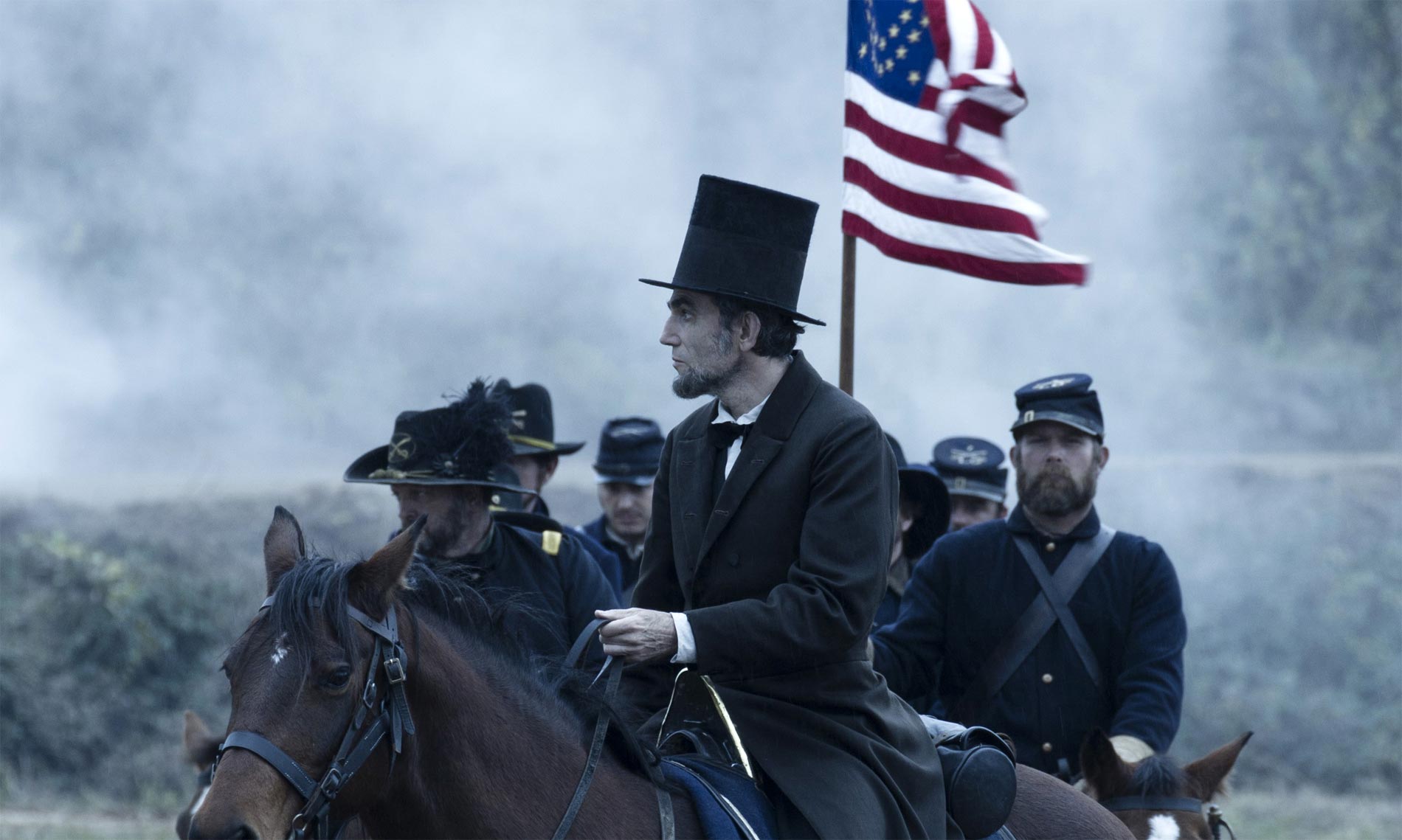Lincoln
This year’s Oscar bait films all have two things in common. The first being very long runtimes (Zero Dark Thirty, Les Misérables and Django Unchained all being over two and a half hours). The second and more important is brilliant leading performances. Be it Hugh Jackman, Jessica Chastain or Jamie Foxx, all of last month’s big titles had big names in big roles. But none quite as important as Daniel Day-Lewis’ ground-breaking performance in the biopic of the most loved US president of all time, Lincoln.
A lot of the praise surrounding Spielberg’s return to form has centred around Day-Lewis’ leading performance. Undeniably, being bored of intense close-ups of Jackman’s tonsils, Foxx’s perpetual destruction of blood packs and Chastain’s emotional void of a character, Day-Lewis is more than worthy of an Oscar. I will not linger too much on it, because what I am really scared of with this film is the fact that other performances in it may be largely overlooked due to the leading man’s wonderful work.
Sally Field’s supporting role as Mary Todd Lincoln is worthy of credit. Her performance as the ever-loyal but ever-worried wife provides a much needed change of pace from the frequent dialogue heavy political scenes. Spielberg indulges the audience with intimate peeks into Lincoln’s family affairs, from tender moments with his youngest son Tad (Gulliver McGrath, who incidentally shows off his great potential with an outburst at the end of the film) to the emotionally charged conflicts with his eldest, Robert (Joseph Gordon-Levitt).
{{ quote A hugely committed cast which brings to life one of the most important moments in American political and social history. }}
Other stellar performances from quality TV talent like David Costabile of Breaking Bad fame, and Michael Stuhlbarg from the brilliant Boardwalk Empire, give even the minor characters incredible dramatic bite. Even the group who play the men hired by Lincoln to sway voters rewards a loyal audience with great moments of well timed comic relief. But by far and away the best supporting role in this picture is veteran Tommy Lee Jones as the resolute and fiery radical, Thaddeus Stevens. Jones really captures the essence of the character and demonstrates that there’s still life in the old dog.
This film is less a biopic of Abraham Lincoln than a glimpse into the workings of 18th Century American politics. Taking nothing away from Day-Lewis, I think the film’s focus is more on the people and events surrounding him. He is able to create such a convincing Lincoln because the action around him is brilliantly real. Spielberg’s well paced camera work and editing allows an audience to fully indulge in the history of the film.
His warm colour palette and vividly structured mise-en-scene gets the audience as close to the period as possible without becoming tiresome and convoluted, and with a run time of just under two and a half hours, it was in danger of being so. The risk was the film becoming too much of a history lesson. Jargonised and assuming dialogue could potentially alienate an audience uninformed of its political content as most of its length revolves around action in the House of Representatives, and the chin-wagging between politicians with varying degrees of superb facial hair.
But the human elements of the film, coming mainly from the back rooms of the White House and the family there, keep it down-to-earth. Lincoln’s relationship with his sons and his wife is touching and involving, his relationship with his political cabinet serious and intriguing.
Spielberg also nods at, but never quite fully involves himself with the issue of slavery.
This may seem weird considering the film is about the 13th Amendment but his slow pace and concise tone keeps the camera, and the audience, objective (if you’re looking for controversy, go watch Django Unchained or Zero Dark Thirty). This is good because the film can then focus itself on its strongest asset: the characters.
Having recently done a study on Spielberg, I am a converted fanboy of the Hollywood old hand, but I am desperately trying to be as unbiased as possible. Anyone who enjoys character and/or historical dramas will definitely love this film.
Its length may test the attention of a less patient viewer. However, it is worth anyone’s time, not just for Daniel Day-Lewis, but for the incredible effort of a hugely committed cast which brings to life one of the most important moments in American political and social history.

Comments